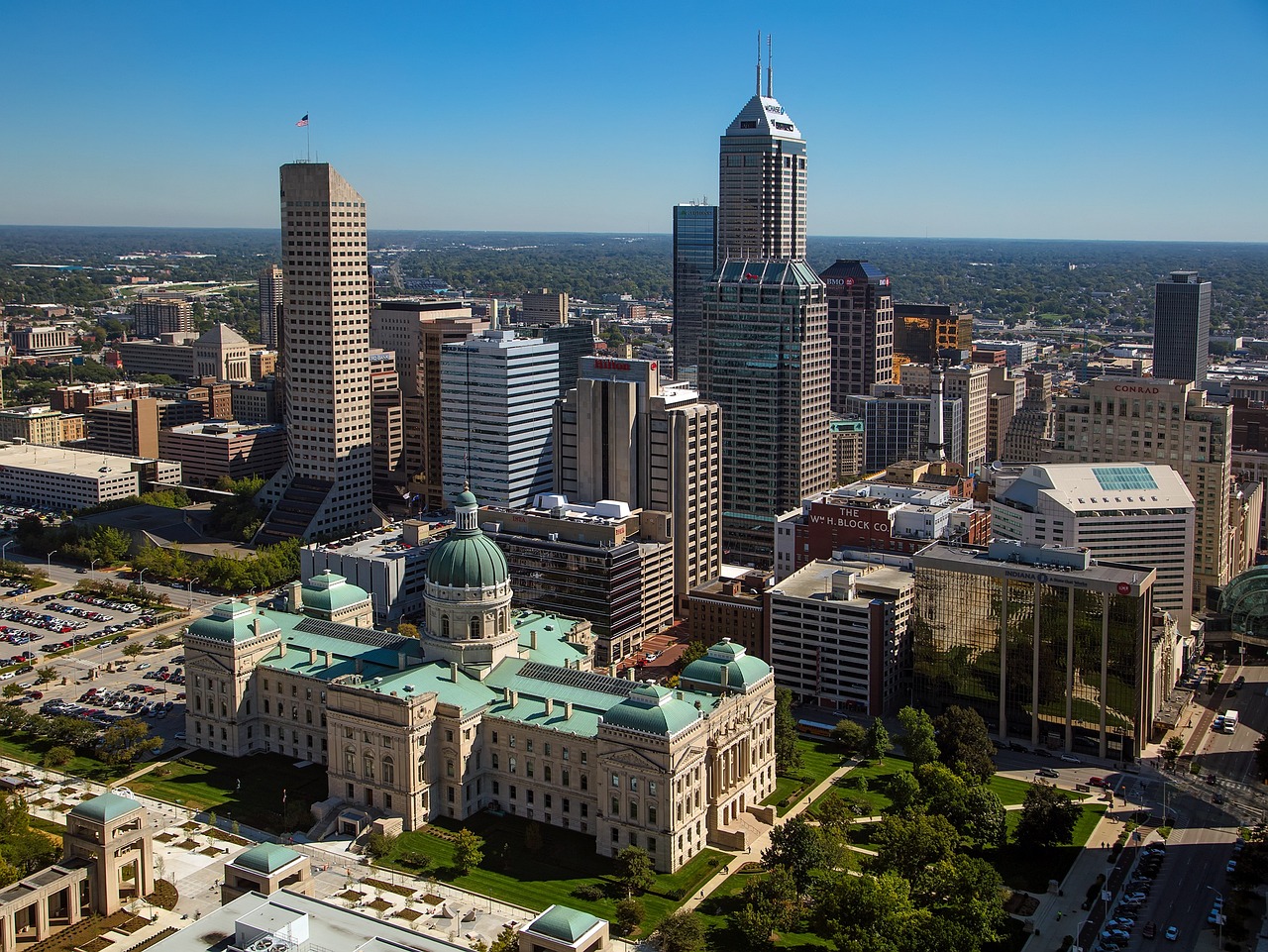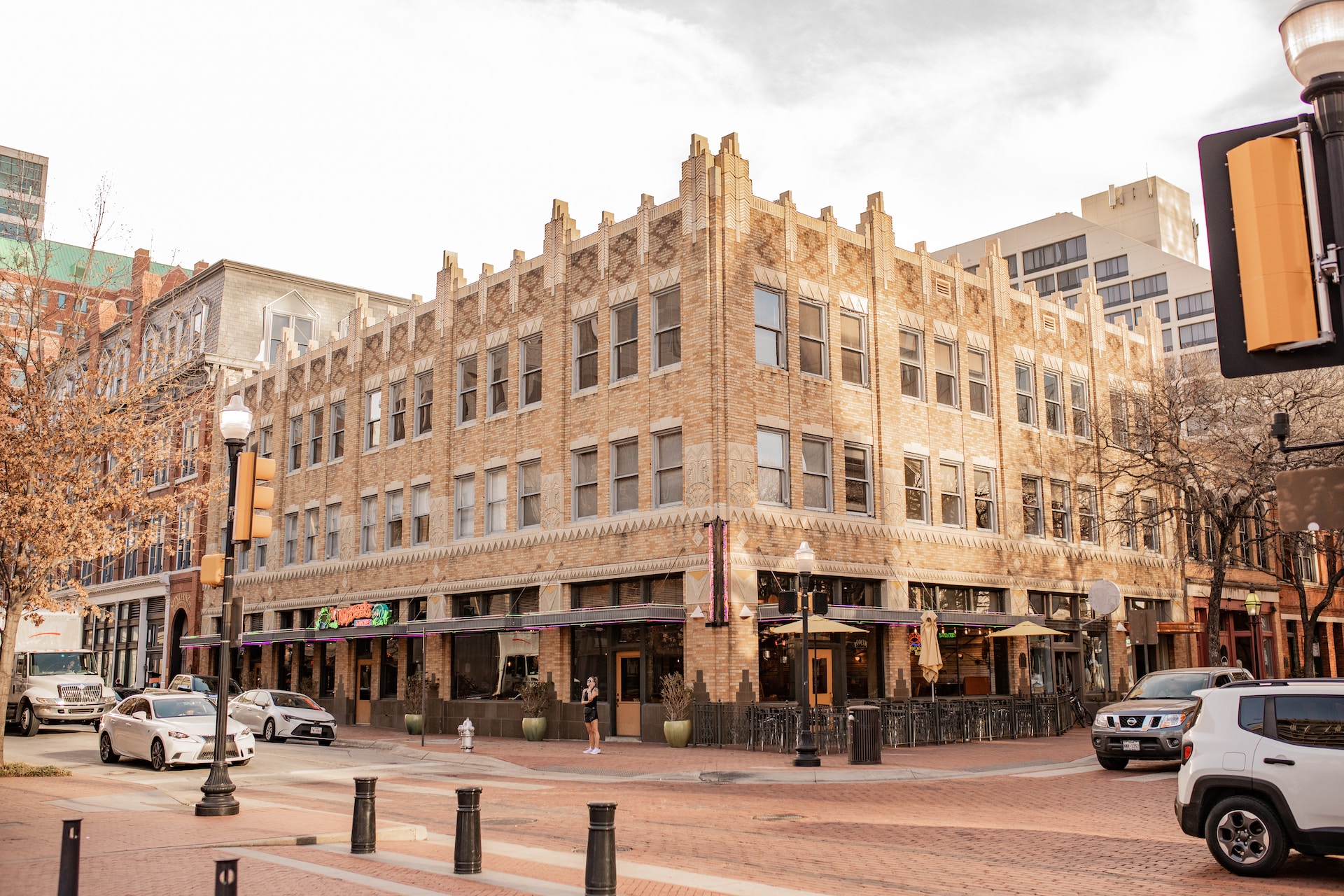In this guide, we’ll cover:
- Pros and Cons of Living in Atlanta
- Tax Rates
- Cost of Living
- Public Transportation
- Traffic and Transportation
- Weather and Natural Disasters
- Job Market
- Diversity and Demographics
- What To Do and Where To Go
- Schools and Universities
- Crime
- Atlanta Utility Providers
- Atlanta Neighborhoods
Welcome to Atlanta, Georgia! The capital of the Peach State, Atlanta is a vibrant and cosmopolitan city with something for everyone. From its world-class museums and art galleries to its professional sports teams and exciting nightlife, Atlanta has something to offer everyone.
If you’re thinking about moving to Atlanta, here are a few things you should know:
- The cost of living in Atlanta is relatively low, especially when compared to other major cities like New York or Los Angeles.
- Atlanta has a mild climate, with four distinct seasons.
- Atlanta is a very diverse city, with people from all over the world calling it home.
- Atlanta is a major transportation hub, with Hartsfield-Jackson Atlanta International Airport being the busiest airport in the world.
- If you’re looking for a city with a lot to offer, Atlanta is the perfect place for you. With its friendly people, mild climate, and endless activities, Atlanta is sure to make you feel at home.
Pros and Cons of Living in Atlanta
Atlanta is a vibrant and diverse city with a lot to offer its residents. From a strong job market to a thriving cultural scene, Atlanta has something for everyone.
Atlanta is home to a number of Fortune 500 companies, and the city’s unemployment rate is consistently low. This makes it a great place to find a job, regardless of your industry. In addition, Atlanta has a thriving entrepreneurial scene, making it an ideal place to start your own business.
The city has a rich history and culture. There are countless museums, art galleries, and theaters to explore. It also hosts a variety of festivals throughout the year, including music, film, food, and literature festivals. Atlanta’s diverse culinary scene is another major draw, with restaurants serving everything from Southern comfort food to international cuisine.
Atlanta has a moderate climate, with mild winters and warm summers. This makes it a great place to enjoy outdoor activities year-round. The city is surrounded by natural beauty, including Piedmont Park and the Chattahoochee River. There are also plenty of opportunities for hiking, biking, and other outdoor recreation. Atlanta is also close to the Blue Ridge Mountains and the Georgia coast, making it easy to escape for a weekend getaway.
While Atlanta has numerous advantages, there are a few considerations to keep in mind. One of the biggest challenges of living in Atlanta is the traffic. The city can be very congested, especially during rush hour. There’s an extensive public transportation system in place, including MARTA trains and buses, that can help mitigate this issue.
The cost of living in Atlanta is generally lower than in other major cities. However, some neighborhoods and areas can be more expensive. It’s important to research and choose a suitable neighborhood based on your personal preferences and budget.
Tax Rates
Atlanta, Georgia, levies a state income tax between 1% and 5.75%. Additionally, the sales tax rate in Atlanta consists of a 4% state tax and a 3% local tax, resulting in a total sales tax rate of 7%. It’s important to keep in mind that tax rates and regulations may vary, so consulting with a tax professional or researching the most up-to-date information is recommended.
Cost of Living
The cost of living in Atlanta is generally more affordable than other major cities in the U.S. Housing costs, including rent and home prices, can vary depending on the neighborhood and amenities you want. Utilities, transportation, and groceries are typically in line with the national average. When evaluating the cost of living in Atlanta, it’s important to consider your lifestyle preferences and budget to ensure a comfortable and sustainable move.
Public Transportation
Atlanta has a great public transportation system called MARTA (Metropolitan Atlanta Rapid Transit Authority). It includes both buses and trains that connect different neighborhoods, making it easy to get around the city. MARTA trains run on four main rail lines, while buses cover a wide range of routes. The system is especially useful for getting to major attractions, universities, and employment centers. MARTA Breeze Cards make it easy to pay fares, and schedules and route maps are available on the MARTA website and through mobile apps.
Traffic and Transportation
Atlanta’s traffic can be a real pain, especially during rush hour. The city’s growing population and sprawl contribute to the heavy traffic. However, Atlanta has been working to improve its transportation infrastructure to reduce congestion. The Metropolitan Atlanta Rapid Transit Authority (MARTA) operates a network of buses and trains that can help residents and commuters get around the city. MARTA’s rail system connects various neighborhoods and key destinations, like downtown Atlanta, major universities, and the airport. Additionally, Atlanta has a well-developed road network with several major highways and thoroughfares that provide access to different parts of the city and the surrounding areas.
Weather and Natural Disasters
Atlanta has a pretty typical four-season climate. Summers are hot and humid, winters are mild, and spring and fall are pleasant. But because it’s in the southeastern United States, it’s also prone to occasional severe weather, like thunderstorms, tornadoes, and tropical storms.
Summers can be really hot and humid, with temperatures in the 90s Fahrenheit (30s Celsius). It’s important to stay hydrated and take breaks from the heat if you’re spending time outdoors.
Winters are generally mild, with temperatures ranging from the 40s to the 60s Fahrenheit (5-15 degrees Celsius). But it’s not uncommon to get a cold snap or a snowstorm, so it’s always a good idea to be prepared for winter weather. Spring and fall are the best times of year to enjoy Atlanta’s mild weather. Temperatures are usually in the 60s to 80s Fahrenheit (15-25 degrees Celsius), and there’s not too much humidity.
While Atlanta is not located in a high-risk area for hurricanes, tropical storms can still bring heavy rain and strong winds to the region.
Job Market
The job market in Atlanta, Georgia, is known for its diversity and growth across various industries. The city serves as a major economic hub in the southeastern United States, attracting both established corporations and startups. Atlanta is home to several Fortune 500 companies, including The Coca-Cola Company, Delta Air Lines, and Home Depot, which provide a significant number of employment opportunities. Additionally, the city has a thriving film and television industry, with major studios and production companies establishing their presence in the area.
The technology sector is another area of strength in Atlanta’s job market. The city has a growing startup ecosystem and is considered a tech hub in the region. Companies like NCR Corporation, Mailchimp, and SalesLoft have their headquarters in Atlanta, attracting tech talent and contributing to the city’s reputation as an innovation center. Universities such as Georgia Tech, also play a role in fostering a skilled workforce and promoting research and development.
Atlanta’s job market isn’t limited to specific industries, as it offers opportunities in many different sectors. The healthcare industry is robust, with well-known hospitals and research centers. Moreover, the city’s logistics and transportation sectors benefit from its strategic location, serving as a major transportation hub for the southeastern region. Overall, the job market in Atlanta is dynamic and diverse, providing a range of opportunities for professionals across multiple fields.
Diversity and Demographics
Atlanta is a diverse and welcoming city where people from all over the world call Atlanta home, and the city’s culture reflects its diversity. Atlanta has a large African American population, which has played a major role in shaping the city’s history and culture. The city also has a growing Hipic and Asian community, which has added to its diversity.
Atlanta celebrates its diversity through festivals, events, and cultural institutions. For example, the city hosts the annual Atlanta Pride Festival, which is one of the largest LGBTQ+ festivals in the United States. The Atlanta History Center has a permanent exhibit on the history of the city’s African American community. The High Museum of Art has a large collection of art from around the world. The Atlanta Botanical Garden has a variety of gardens that represent different cultures.
Atlanta is known for its welcoming spirit where people from all backgrounds, religions, and ethnicities are welcome. It’s a city where people can come together to create, learn, and grow. If you’re looking for a city that is diverse, inclusive, and welcoming, Atlanta is the place for you.
What To Do and Where To Go
Atlanta is a vibrant and exciting city with something for everyone. Whether you’re interested in history, culture, food, or sports, you’ll find plenty to do in Atlanta.
Explore the Atlanta BeltLine
The Atlanta BeltLine is a transformative urban project that combines parks, trails, and public art, creating a vibrant and interconnected community. Enjoy a leisurely stroll or bike ride along the BeltLine’s scenic paths, discover local artwork, and visit various parks and green spaces along the way. The Eastside Trail is particularly popular, featuring trendy restaurants, shops, and bustling markets.
Visit the World of Coca-Cola
Immerse yourself in the fascinating world of one of the world’s most iconic brands. At the World of Coca-Cola, you can explore the history and heritage of Coca-Cola through interactive exhibits, taste different beverages from around the world, and learn about the soda’s secret formula. Don’t forget to snap a photo with the beloved Coca-Cola Polar Bear mascot!
Experience Atlanta’s Rich History
Delve into Atlanta’s captivating history by visiting sites such as the Martin Luther King Jr. National Historic Site, which includes his childhood home and the Ebenezer Baptist Church where he preached. The Atlanta History Center offers a comprehensive look into the city’s past, featuring museums, historic homes, and beautiful gardens. Step back in time at the Atlanta Cyclorama and Civil War Museum, which showcases a panoramic painting depicting the Battle of Atlanta.
Schools and Universities
Atlanta is home to several esteemed educational institutions, offering a diverse range of educational opportunities. The Georgia Institute of Technology, commonly known as Georgia Tech, is renowned for its engineering and technology programs. Emory University, a private research university, boasts top-ranked programs in fields such as business, law, and health sciences. Georgia State University is a vibrant public institution offering a wide range of undergraduate and graduate programs. In addition to these universities, Atlanta has a variety of public and private K-12 schools, including both traditional and innovative educational approaches, providing families with ample choices to suit their children’s needs.
Public schools
Atlanta has a large and diverse public school system, with over 90 schools serving over 50,000 students. The system is divided into five geographic clusters, each with its own superintendent and school board. The schools in the Atlanta Public Schools system are consistently ranked among the best in the state, and many of them have been recognized for their academic excellence.
Private schools
There are also many private schools in Atlanta, serving students of all ages. Some of the most well-known private schools in Atlanta include The Westminster Schools, The Lovett School, and The Marist School. These schools offer a variety of academic programs, extracurricular activities, and religious affiliations.
Universities
Atlanta is also home to a number of highly-ranked universities, including Emory University, Georgia Institute of Technology, and Spelman College. These universities offer a wide range of academic programs, and they attract students from all over the world.
Crime
When considering a move to Atlanta, Georgia, it is important to be aware of the city’s crime landscape and take necessary precautions to ensure a safe living environment. Like any major metropolitan area, Atlanta does face certain crime challenges, particularly in certain neighborhoods. It is advisable to research and choose a neighborhood that aligns with your safety preferences and budget.
While Atlanta has made strides in addressing crime, it is essential to exercise caution and employ common-sense safety measures. Stay informed about the areas with higher crime rates and be mindful of your surroundings, especially during nighttime and in less crowded areas. Additionally, investing in quality home security systems and practicing responsible personal safety habits can contribute to a sense of security. Remember to stay connected with local law enforcement agencies for updates and advice on crime prevention.
By being proactive and informed, you can navigate Atlanta’s crime landscape while enjoying the city’s vibrant culture, diverse communities, and plentiful opportunities. Remember, Atlanta has much to offer, and with the right precautions, you can create a safe and enjoyable experience in your new home.
Atlanta Utility Providers
When it comes to getting your basic necessities up and running, Atlanta has got you covered. The city is served by a handful of utility providers that keep the lights on and the water flowing.
For electricity, you’ve got a couple of options to choose from. Georgia Power is the main electric utility company in the area, providing reliable service to most of Atlanta. They offer easy online sign-ups and helpful customer support, so you can get your power sorted out hassle-free. If you’re all about renewable energy, you can also explore alternative options like Green Power EMC, which offers environmentally friendly electricity options.
When it comes to water and sewage services, the Department of Watershed Management is the go-to authority. They handle water billing, meter reading, and maintaining the city’s water infrastructure. It’s worth noting that water rates can vary depending on your location within Atlanta, so it’s a good idea to check with them beforehand to get an estimate of what to expect on your bill.
Remember to reach out to the respective providers in advance, so you can have all your essential services ready to go by the time you unpack those moving boxes.
Atlanta Neighborhoods
When it comes to neighborhoods, Atlanta, Georgia has a wide array of options to suit every lifestyle and preference. Let’s dive into four distinct neighborhoods that could be the perfect fit for your new home in the ATL.
First up, we have Inman Park, a historic neighborhood known for its charm and character. With beautiful Victorian homes and tree-lined streets, it’s a picturesque area that feels like stepping back in time. Inman Park is also home to the popular Beltline, a trail that connects various neighborhoods and offers opportunities for outdoor recreation and socializing. The neighborhood boasts a vibrant food and dining scene, with numerous restaurants and cafes that cater to a variety of tastes.
If you’re seeking a more bustling and energetic atmosphere, look no further than Midtown. This vibrant neighborhood is the cultural heart of Atlanta, with an abundance of museums, theaters, and art galleries. Piedmont Park, a sprawling green oasis, provides a perfect spot for outdoor activities and community events. Midtown’s diverse community embraces inclusivity and hosts various festivals throughout the year, making it an exciting place to live.
For those who appreciate a mix of history and modern amenities, Virginia-Highland offers the best of both worlds. This charming neighborhood features beautifully restored Craftsman-style homes alongside trendy boutiques, cafes, and bars. Residents enjoy a strong sense of community and can be frequently found strolling along the streets or gathering at local parks. With its proximity to the Atlanta Beltline and Piedmont Park, Virginia-Highland offers plenty of opportunities for outdoor recreation and leisure.
Lastly, if you’re looking for an urban experience with a touch of luxury, Buckhead might be the ideal neighborhood for you. Known as Atlanta’s upscale district, Buckhead boasts high-end shopping centers, renowned restaurants, and elegant residential areas. This vibrant neighborhood is home to both historic mansions and modern luxury condominiums, attracting a mix of professionals, families, and celebrities. From designer boutiques to exclusive nightclubs, Buckhead caters to those who enjoy the finer things in life.
No matter which neighborhood catches your eye, Atlanta’s got a place that suits your style and interests. So take your time exploring the various neighborhoods, talk to locals, and envision yourself soaking up the unique atmosphere of your future Atlanta home.
Moving to Atlanta
We hope this resource has provided you with valuable insights and information to make your relocation experience smooth and enjoyable. Atlanta offers a dynamic blend of opportunities, from its thriving job market and diverse neighborhoods to its vibrant cultural scene and abundance of recreational activities. Whether you’re drawn to Atlanta’s rich history, world-class universities, or the chance to explore its eclectic food scene, this city has something for everyone.
As you embark on your journey to Atlanta, remember to plan ahead, research your options, and take advantage of the resources available to you. Consider the neighborhoods that align with your lifestyle and budget, explore the excellent schools and universities, and familiarize yourself with the city’s transportation system. Embrace the warmth and hospitality of Atlanta’s residents as you immerse yourself in the vibrant local culture. We wish you the best of luck in your new chapter and hope that Atlanta becomes a place you’re proud to call home. Welcome to the ATL!




